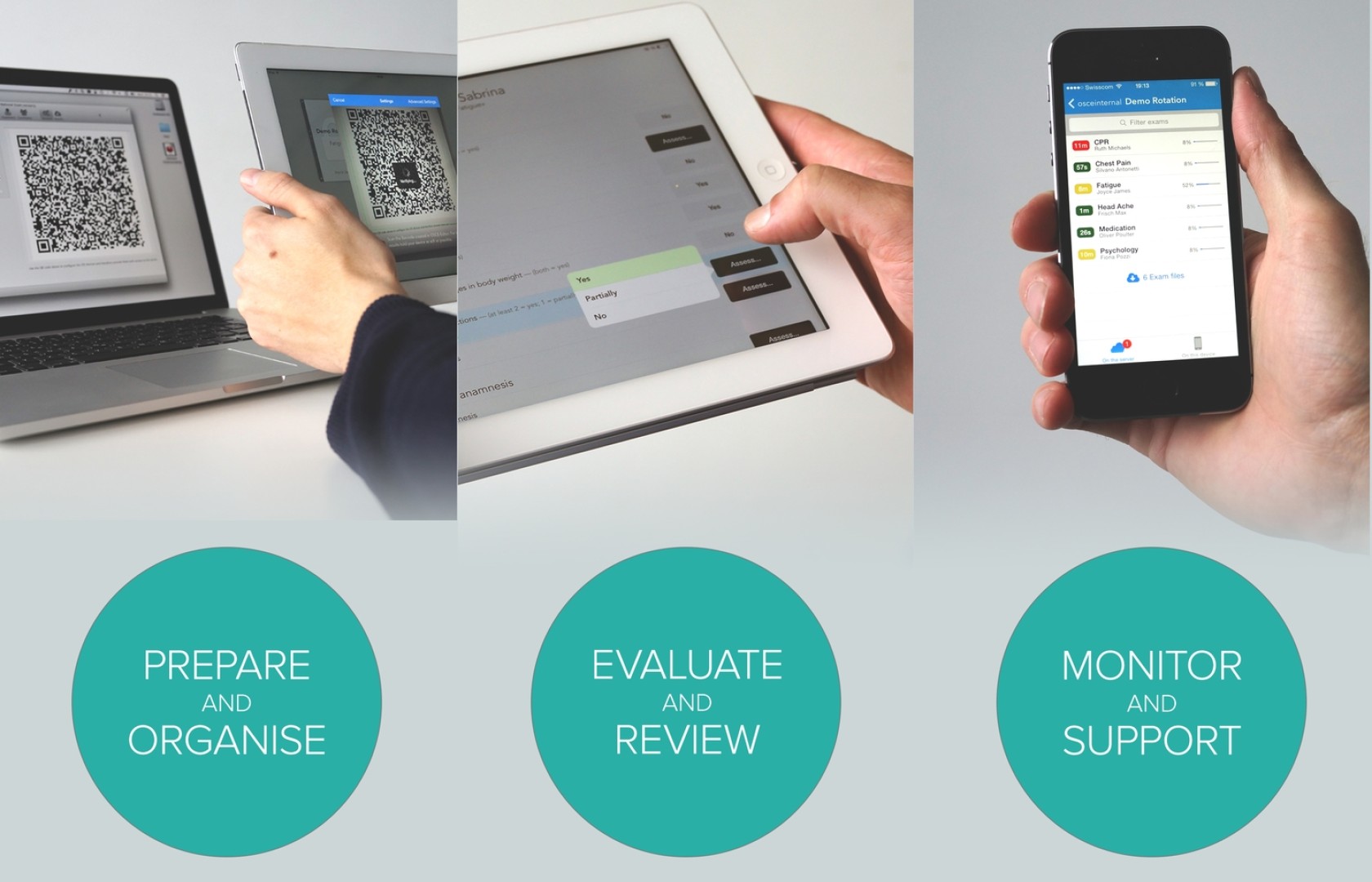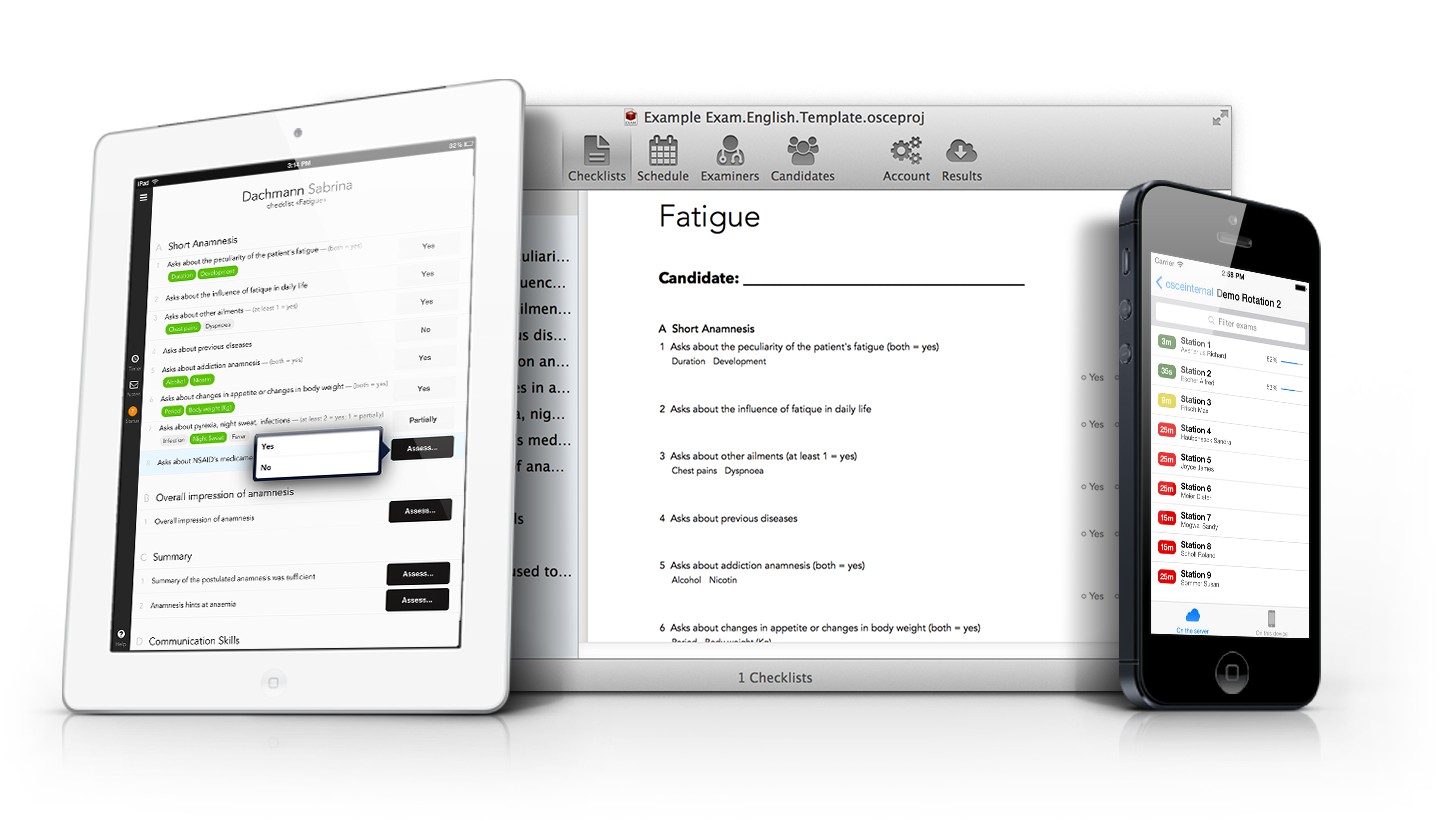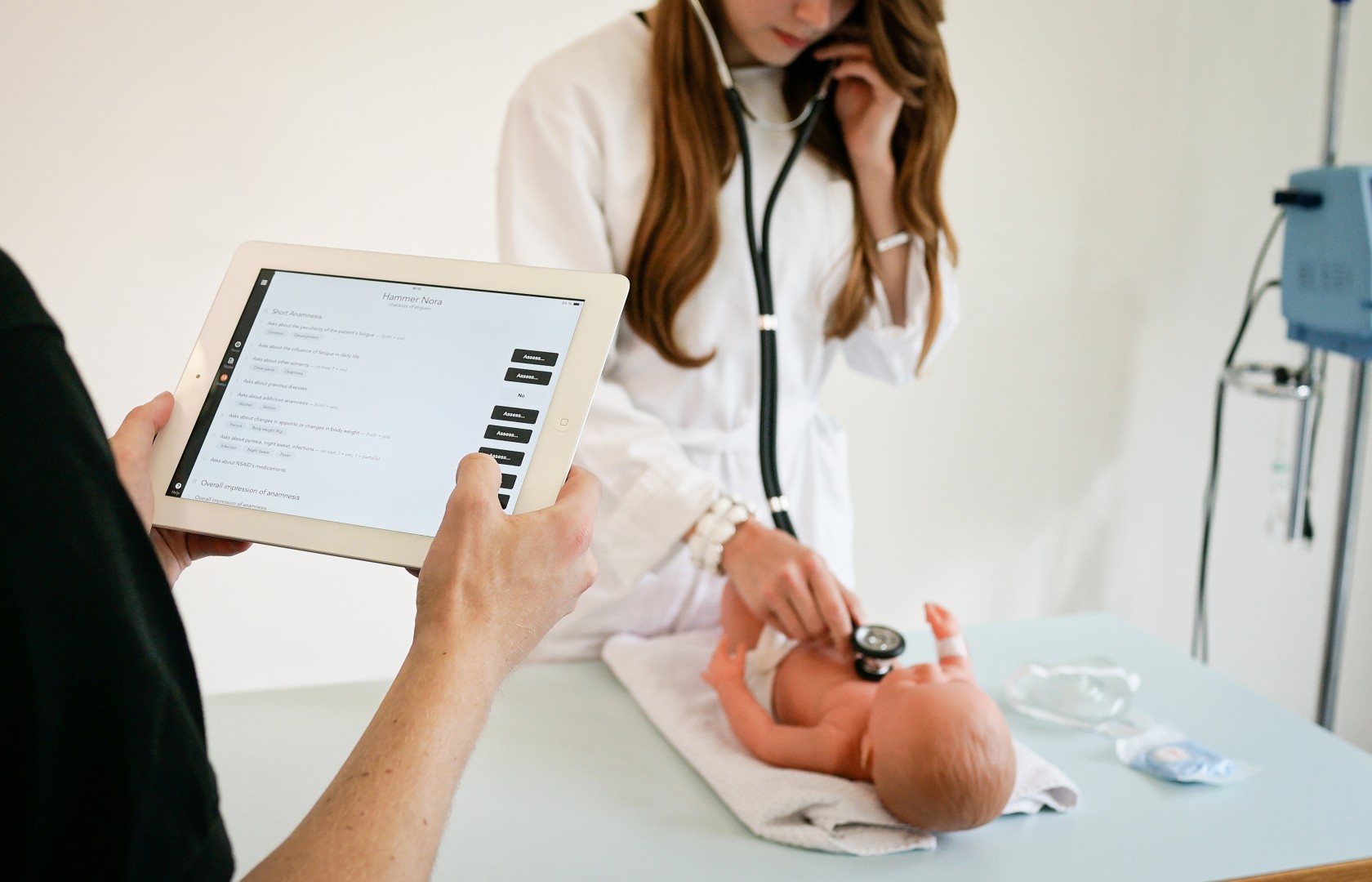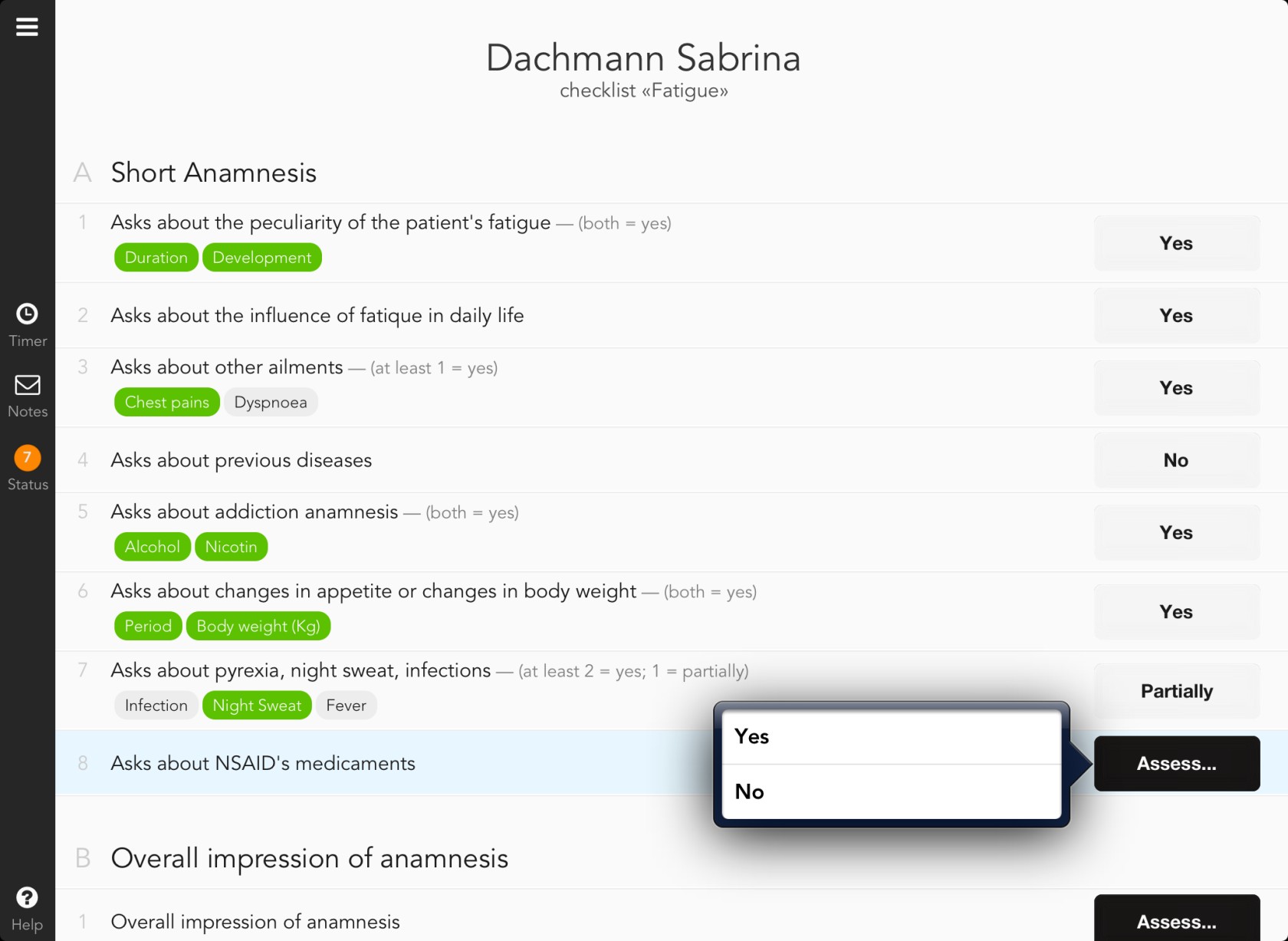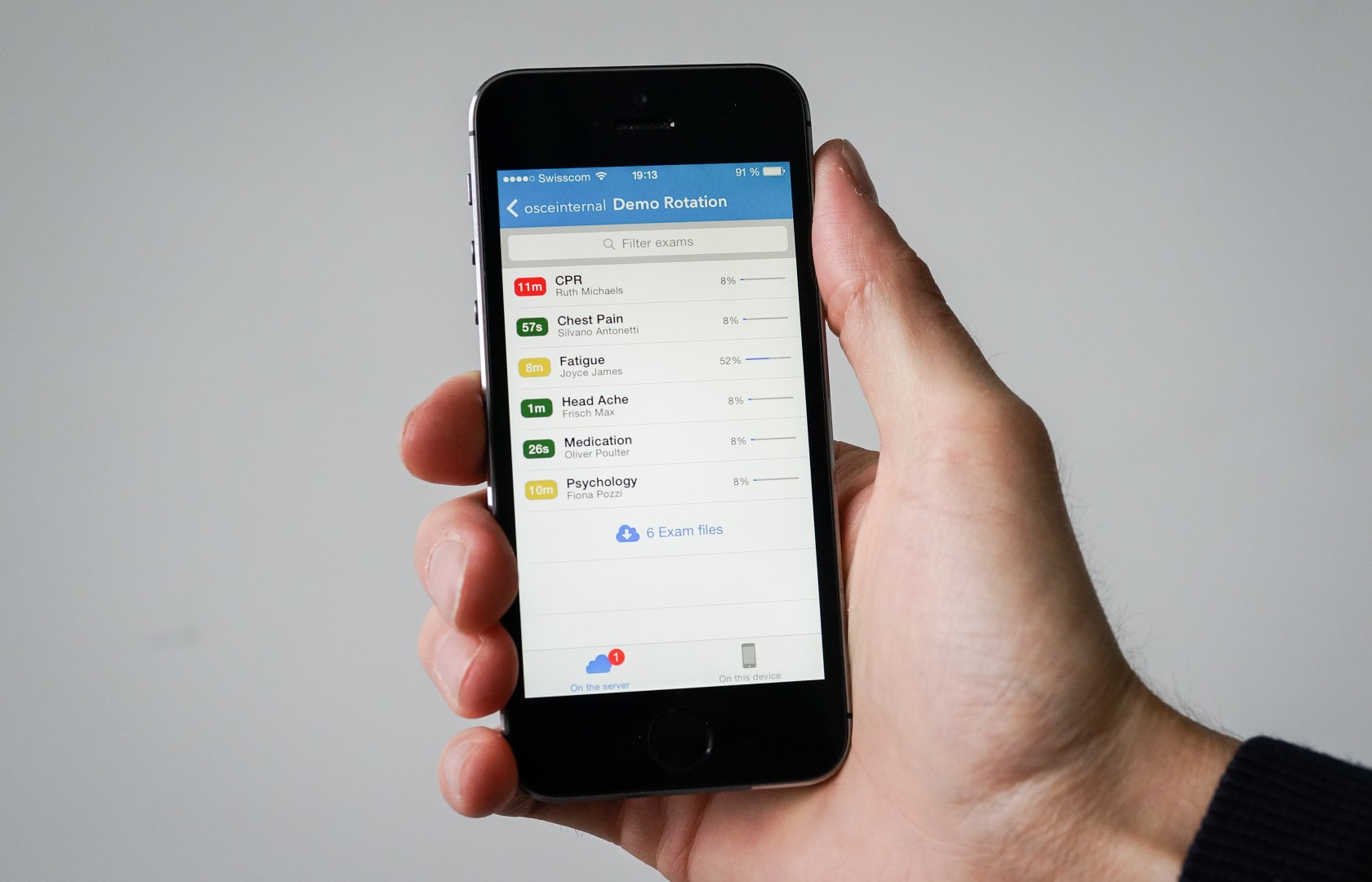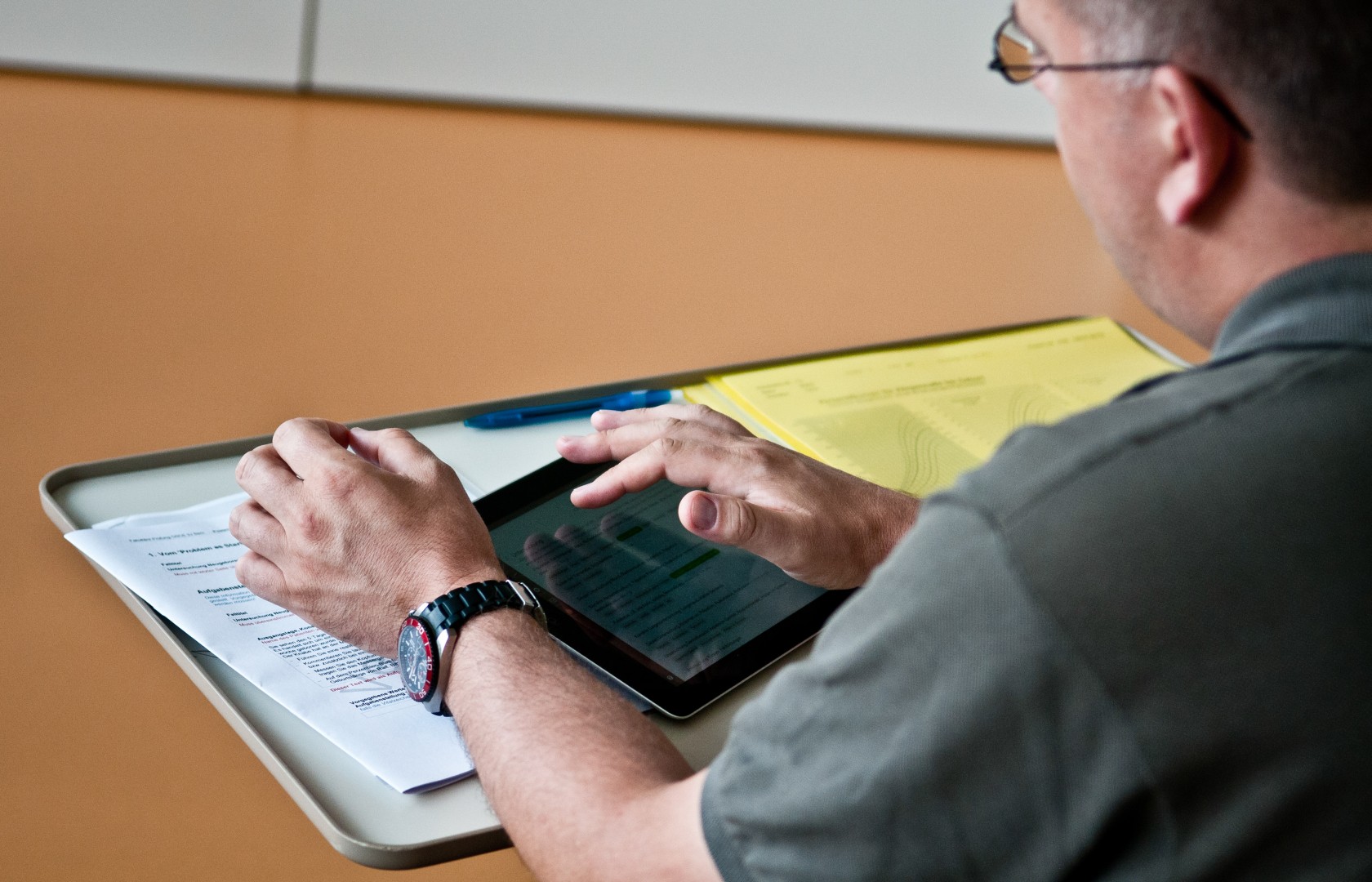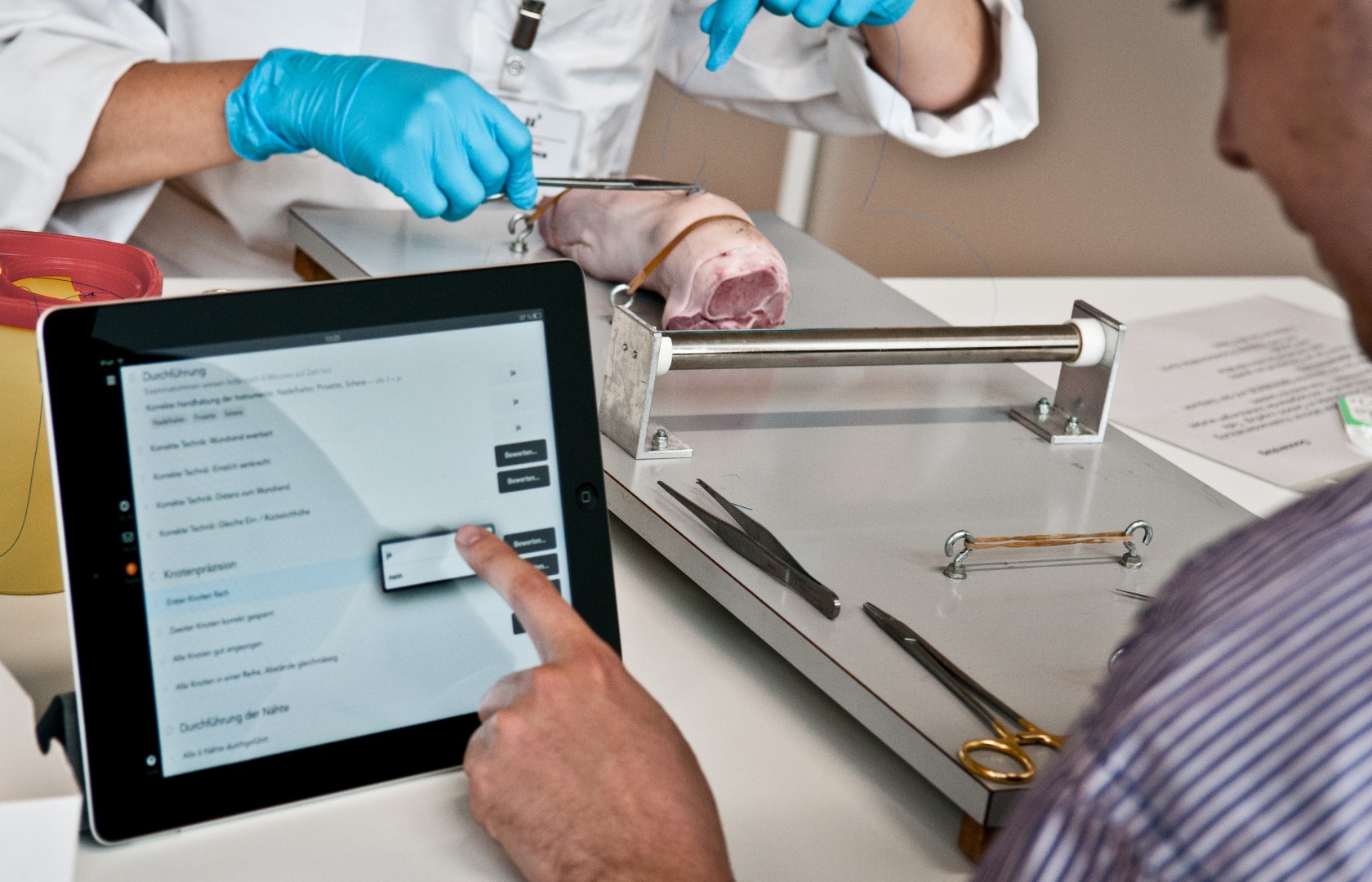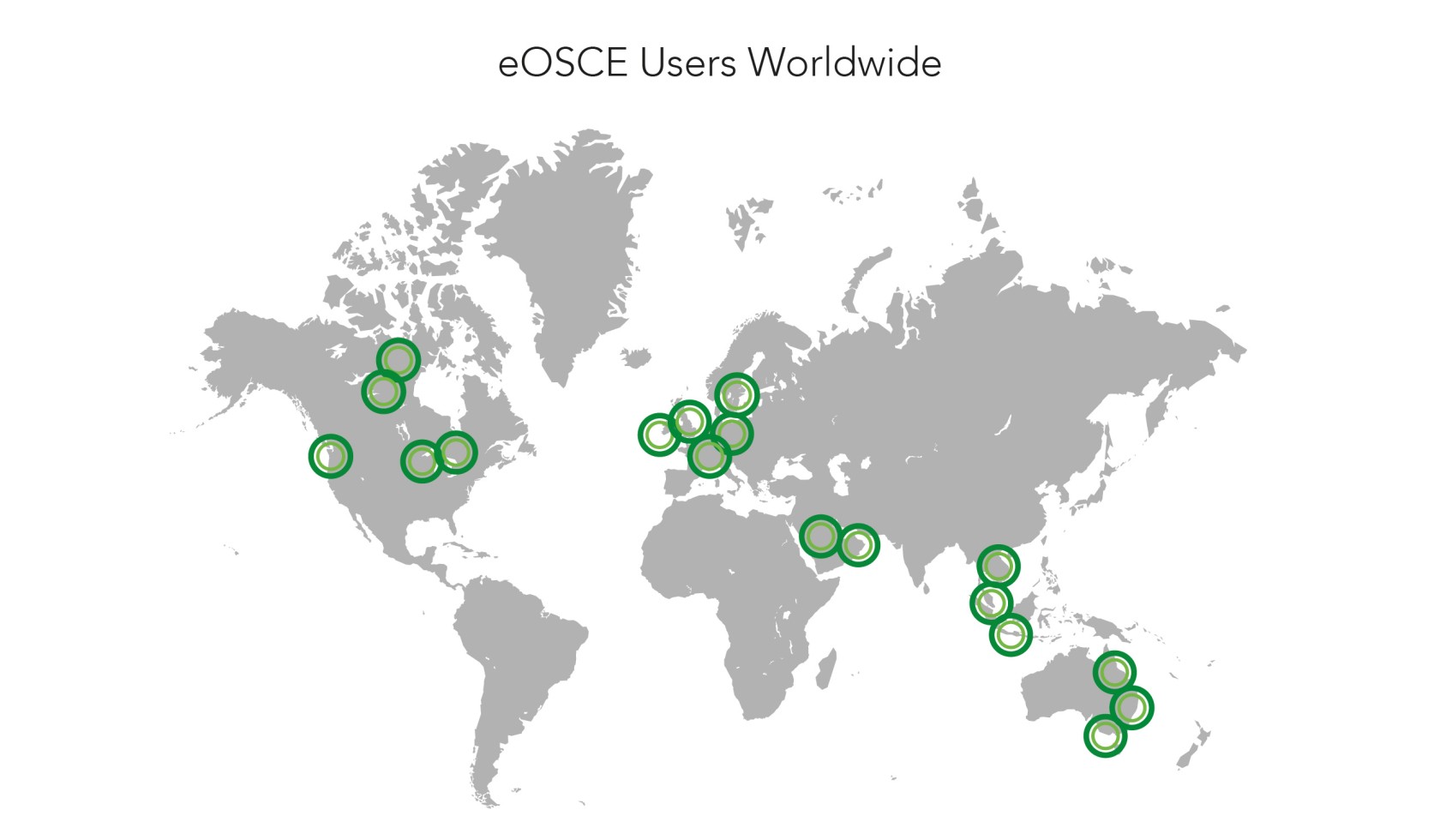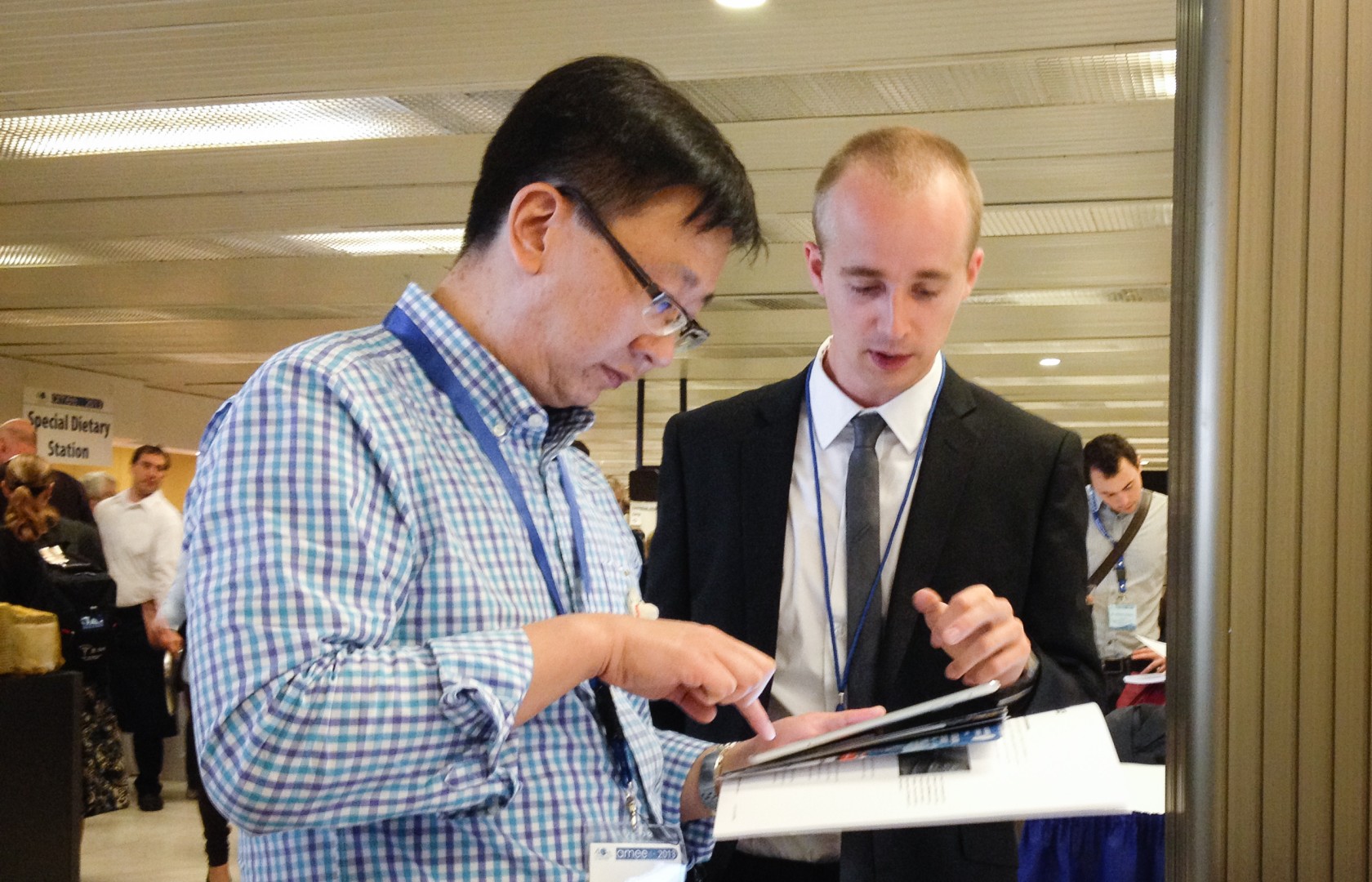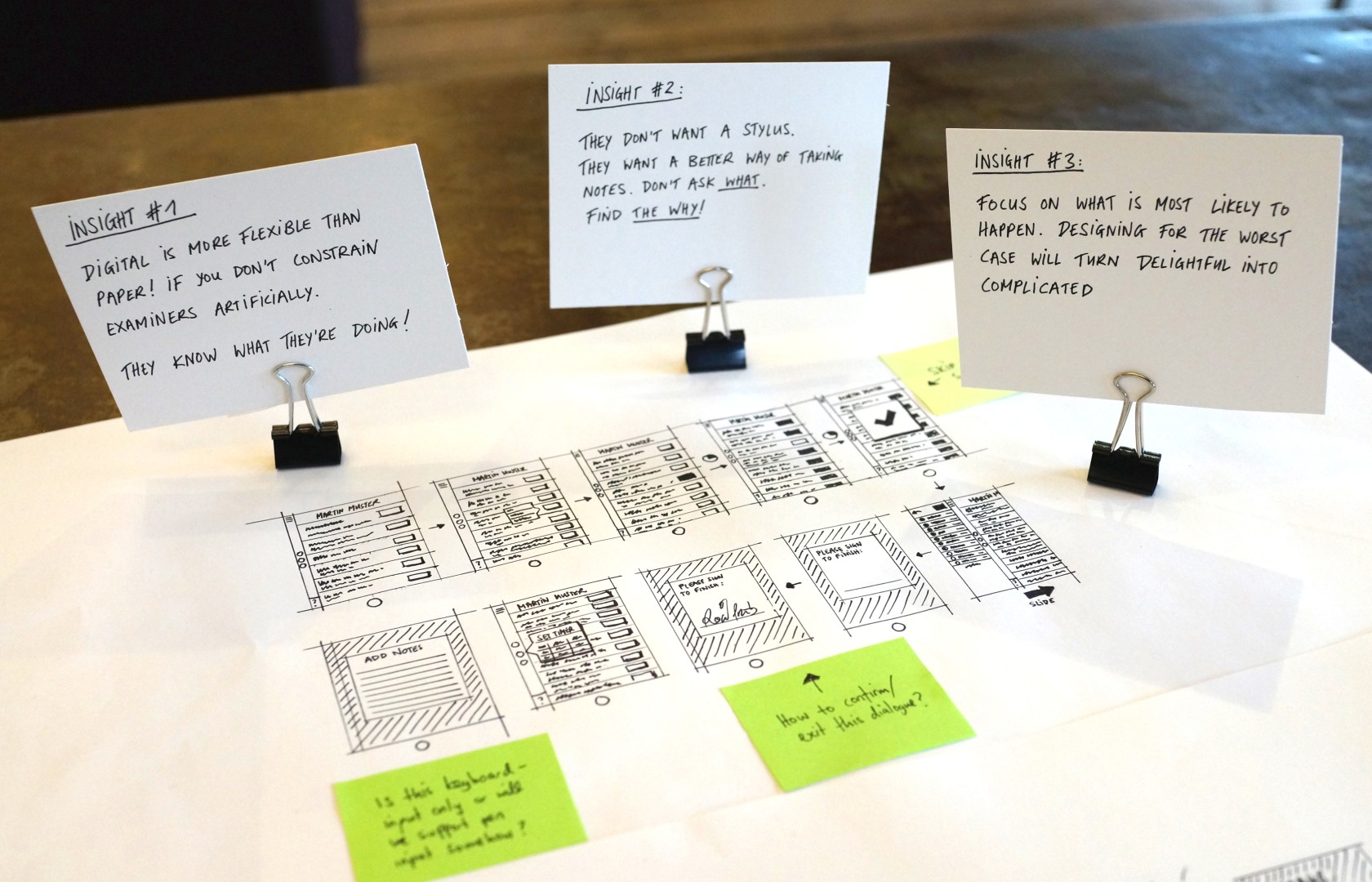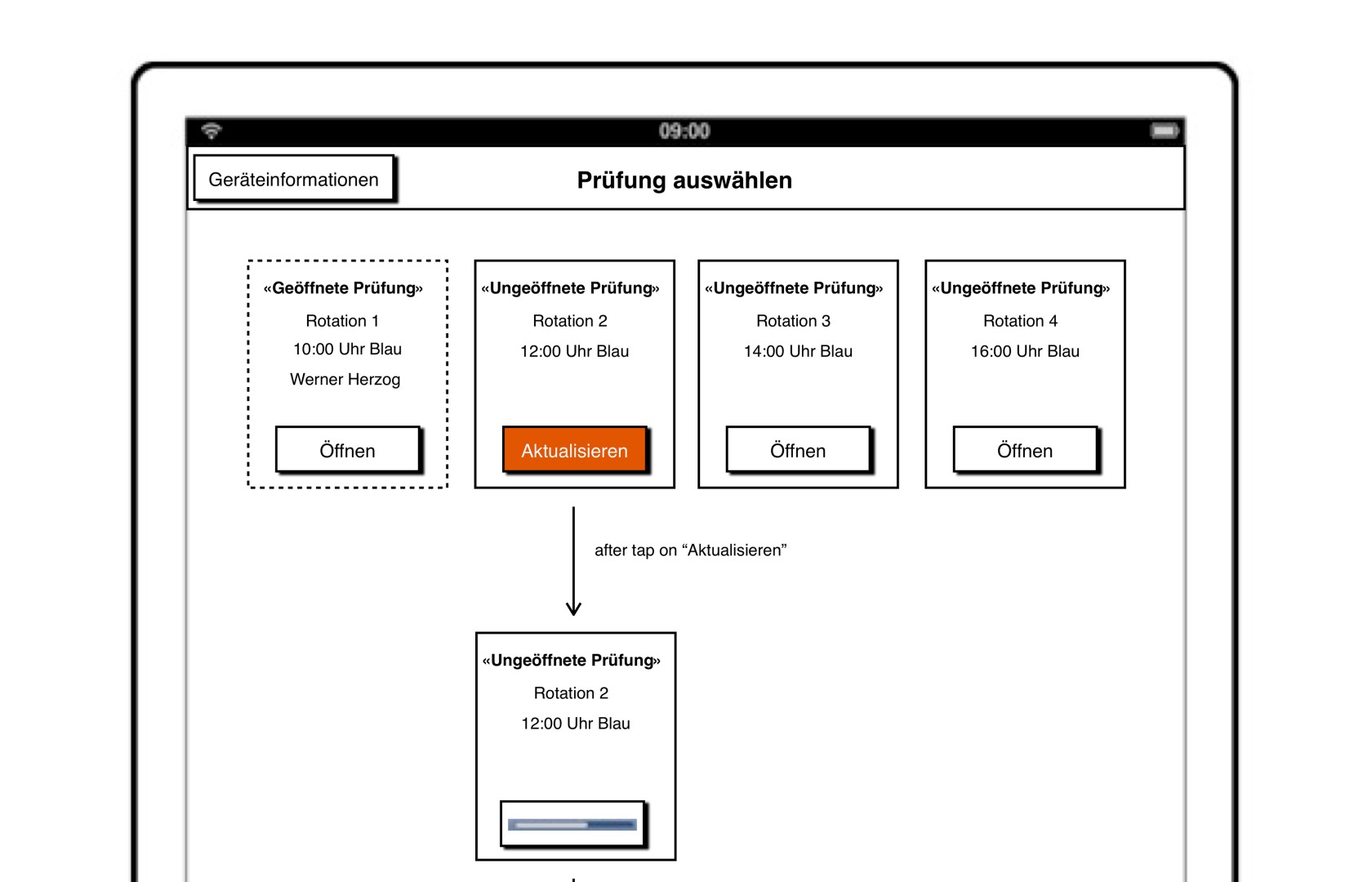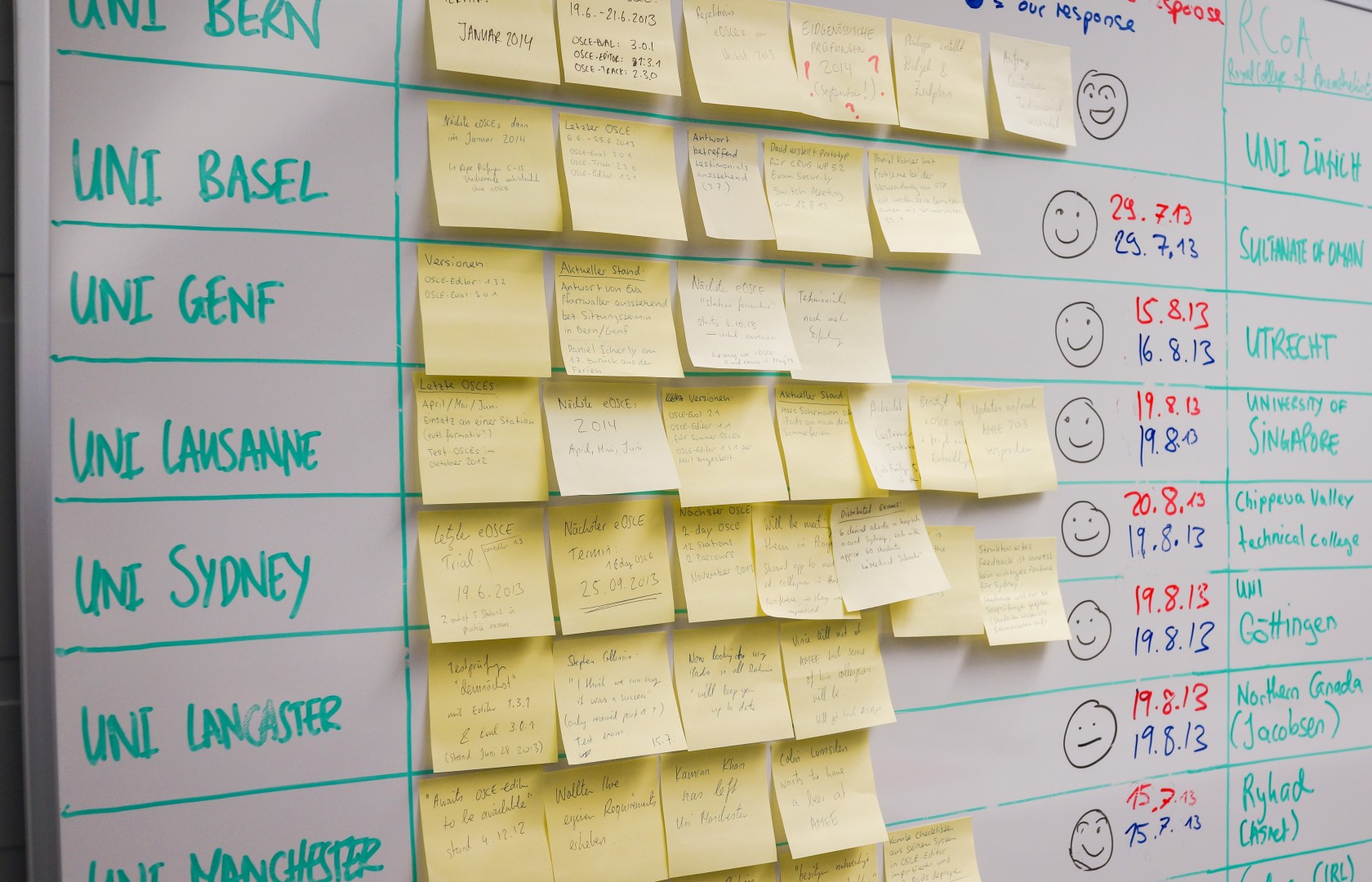In Switzerland, doctors now use iPads to evaluate the skills of every graduating medical student in the country. eOSCE is the examination system that has made it incredibly convenient to plan, run and evaluate these medical examinations. Removing paper from the process made it possible for organizers to deal with exceptional situations as they arrive, rather than rescheduling the exam at great expense. Doctors report to be 25% less stressed during the exam and make 10 times fewer grading errors. That means students now receive more accurate evaluations and the results are accessible in minutes instead of days.
Opportunity
Sweaty palms, restlessness and the fear of failing is what most of us associate with examinations. This holds especially true for medical students’ examinations that will set the course of their future careers. In these examinations, the students’ clinical skills are being evaluated in simulated patient-doctor situations. This requires months of extensive preparation, lots of highly qualified staff and adequate facilities. All of which quickly results in a six-figure budget. No surprise that everybody involved is under constant pressure. And where there is plenty of stress, human errors cannot be far.
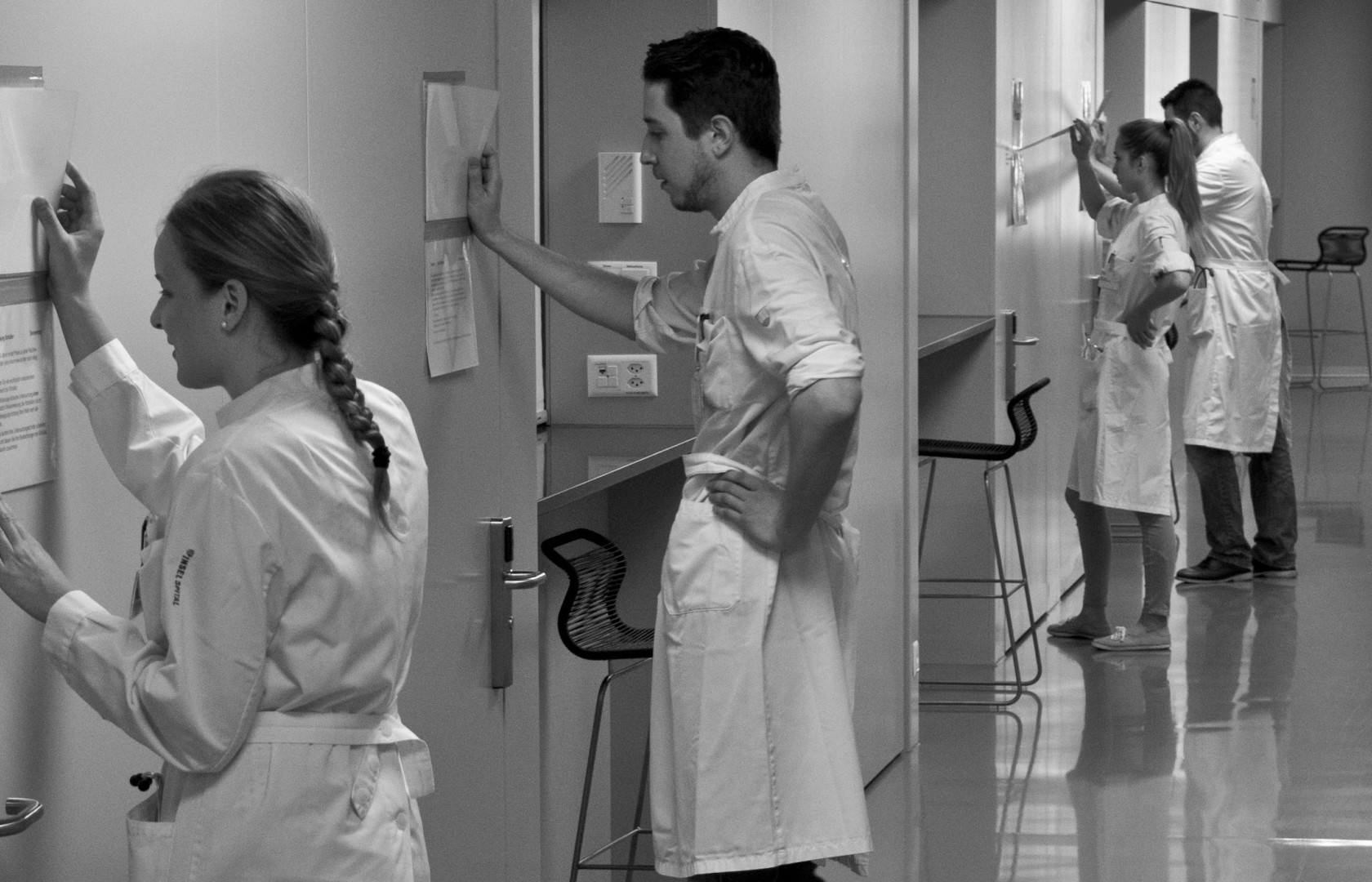
One major source of errors and loss of time is the huge amount of paper checklists that need to be printed, filled-in, scanned and evaluated. However, a digital solution brings up a lot of challenging constraints of its own; from making sure to not skew the examination results, to data security concerns, to making sure people who never used a touchscreen before would be able to do so within 5 minutes of training.
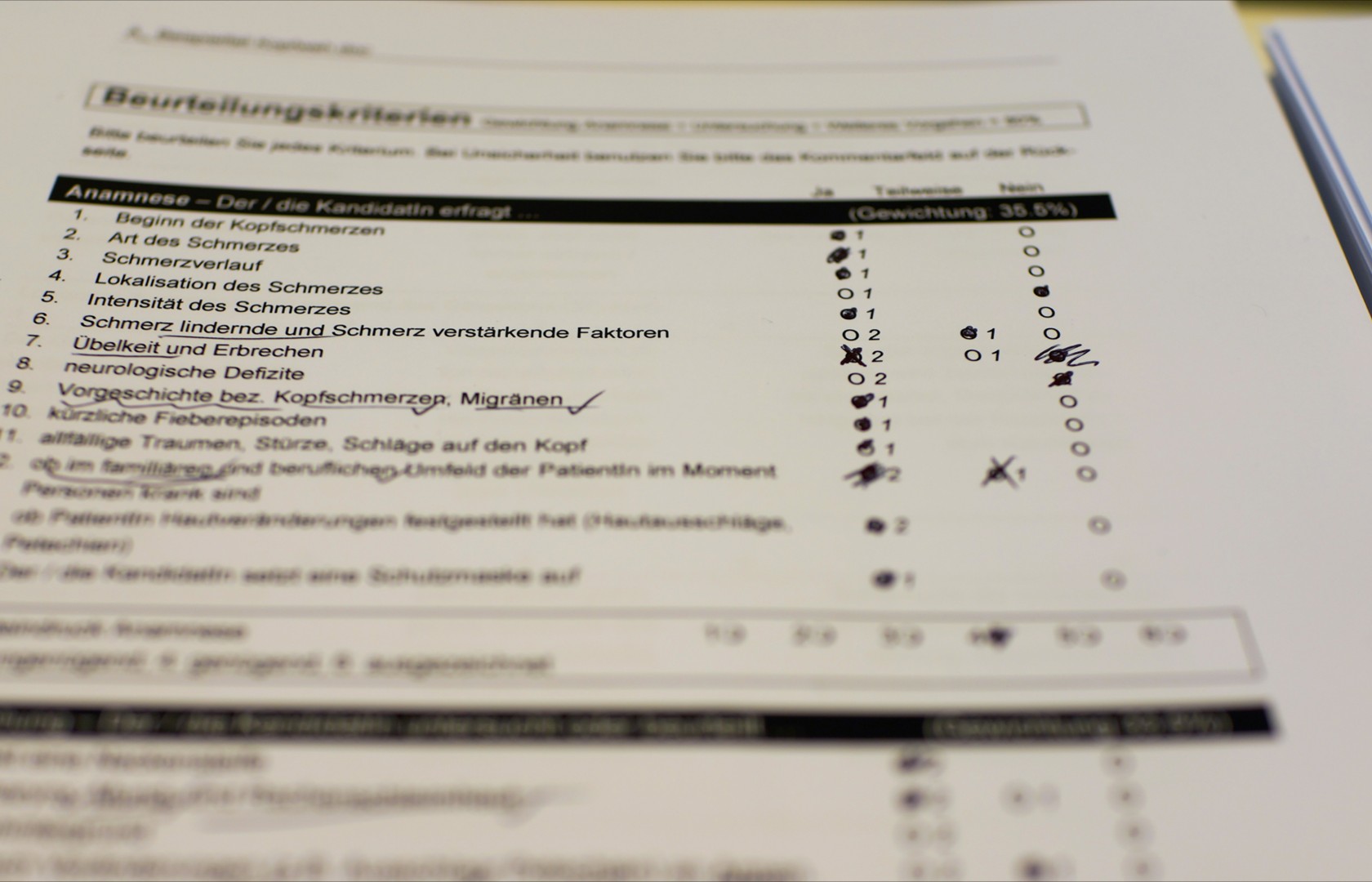
Audience
After observing multiple examinations, we realised how diverse the doctors evaluating the students were. We decided to focus on the hardest case – retired doctors with a healthy dose of skepticism towards new technologies while also making sure we would not impede those that were more experienced. For the design to be successful, we also needed to take the students’, planners’ and administrative staffs’ goals and expectations into account.
Impact
As of 2014, more then seven universities in four countries use eOSCE. For them, eOSCE means up to 20’000 fewer sheets of paper to print and handle per exam and a 5 times quicker turnaround of examination results of higher quality. It also means less uncertainty during the examination itself, because they are now able to intervene in the evaluation progress as it happens. But what pleased us the most was the impact we were having on the doctors themselves; how they could not possibly imagine going back to dealing with paper checklists; how they report to be less stressed when evaluating students and how it is making them more productive and more likely to participate again. Their enthusiasm proved to be key to the overall success of the project.
We are therefore proud to say that – at the very least – a happier doctor is now evaluating every medical student in Switzerland at some time during their studies.
Craft
None of the ideas or technologies of this project are completely new. What made it a success was the belief of putting people’s needs above other constraints. This was only possible after experiencing the examinations first-hand and lots of research (contextual inquiries, questionnaires and interviews).
Over three years we built lots of low and high fidelity prototypes and iterated until they started to show potential in pilot- and usability tests. By not responding directly to the doctors’ requests but by addressing their underlying needs, we were able to confidently remove features at each iteration; optimising the core of the stressful examination experience.
Contribution
Involving doctors, professors, psychologist and software engineers on how to design a user-friendly electronic medical skills assessment system. I developed the backend, the frontend and the communication interfaces of the current version of the software system. I designed the user interface for the exam preparation and the administration app. Later I designed and redesigned user interface parts of the evaluation app. I prototyped, implemented and tested the changes and new features for all three apps. I later became project manager and product owner of the eOSCE assessment suite.
